Mission accomplished
July 08, 2020Mission accomplished
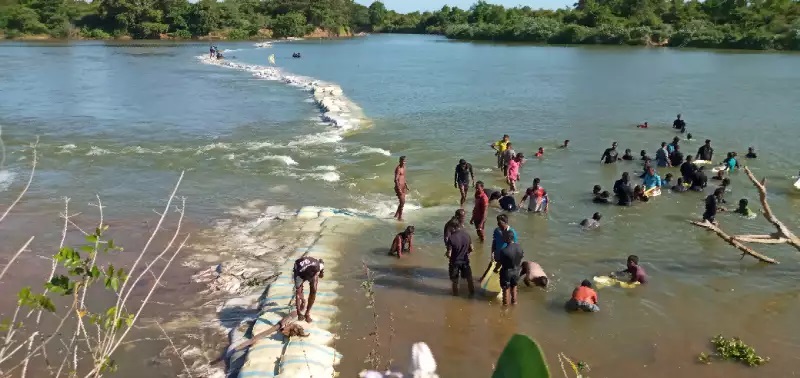 |
By Lt.Com. Dilan Jayatillake
Constructing a 238-meter-long and four feet wide strong weir across a river to retain water for a swathe of thousands of acres to prevent flood within few days, is no easy.
It requires a big force of men and machinery, commitment and expertise. Trained to be one of task oriented forces that work at grass root level, members of the Civil Security Department (CSD) have completed such a long temporary dam across the infamous Mavil-Aru tributary at Kandakadu to retain water for 25,000 acres of regional low-lying paddy lands and also to prevent strong floods during rainy seasons.
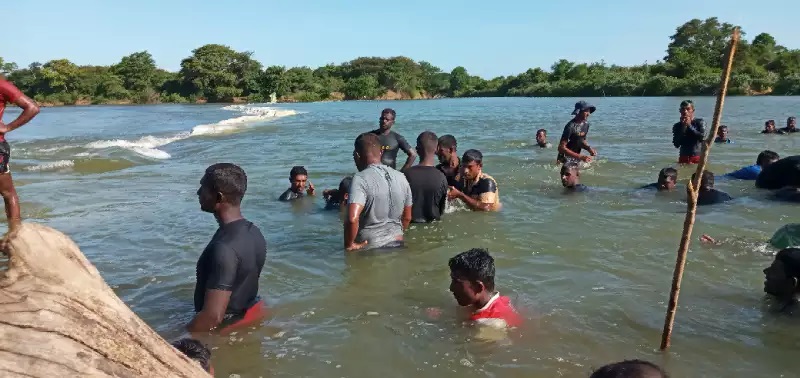
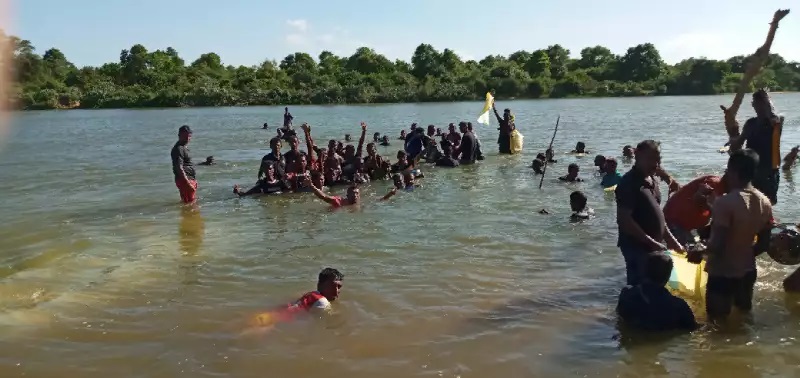
“Each day, we worked from dawn to dusk. We laid over 8,000 sand bags to build the dam,” CSD Commanding Officer of the Polonnaruwa area Maj. Dinesh Kumara said.
He recalled how his men, with no diving gear, dived to the river bottom, sometimes over 20 feet deep, to dig river sand to make sand bags for the dam.
Mahaweli lower basin fed by Mavil-Aru is one of the largest low-lying basins in the island, which is vulnerable to seasonal droughts and severe water shortages due to lack of proper water retention and diversion system at the Kandakadu area.
Explaining that every person in the project executed their part of the work happily irrespective of fatal hazards, he said, “River is a crocodile-dominant area always”.
The reservoir stocks water for 25,000 acres of the paddy lands and during the rainy season farmers used to block the flow of the Mahavali by placing sand bags in Kandakadu area, which takes almost two months, he said.
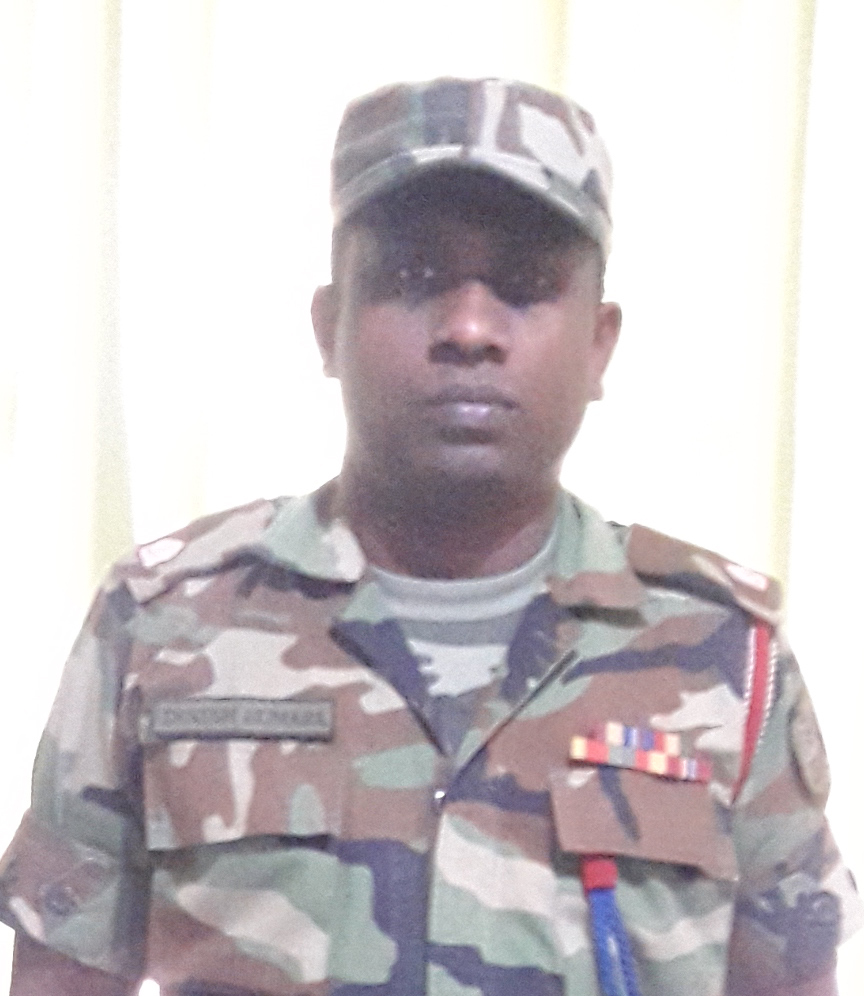
Maj. Dinesh Kumara
CSD Commanding Officer Polonnaruwa
Temporary sandbag weir at the Mavil-Aru feeder canal, widely-known as ‘Mother-River’, is the waterway that supplies water to several regions in the Eastern province.
Mavil-Aru water level drops drastically making an impact on the wildlife, fed by the Mahaweli water and herds of elephants walk to the Mavil-Aru in search of water will be a common sight during the dry spell of the year.
The farmer communities in Kallar, Seru-Nuwara, Seruwila, Dehiwattha, Verugal, Mutur, Ichchalampaththu and Neelapola areas are benefitted by the project that was completed within less than a week under the directives of the Director General CSD Rear Admiral (Retd) Ananda Peiris, and under the direct supervision of the Regional Irrigation Engineer Akilan Kamaladasan, who stayed with the CSD members till the project completion.
It is a project that completed within six-days by 110 men of the CSD, who carried machinery, equipment and ration to their camp through dense forest patches.
“We carried a dingy boat, tractor machine and a light vehicle to the camp through jungle pathways,” he said.
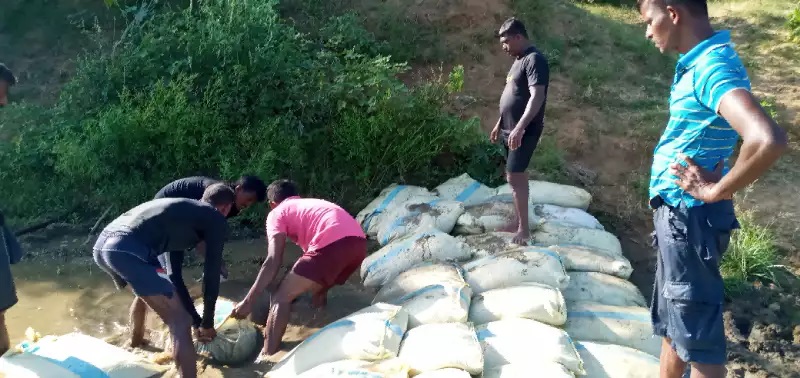 |
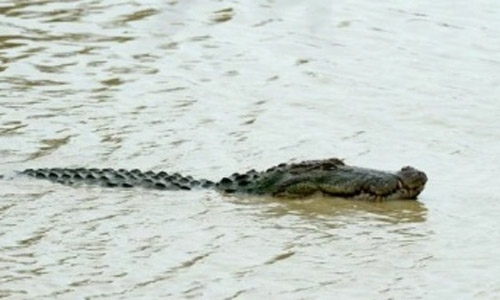
Explaining that every person in the project executed their part of the work happily irrespective of fatal hazards, he said, “River is a crocodile-dominant area always”.
The reservoir stocks water for 25,000 acres of the paddy lands and during the rainy season farmers used to block the flow of the Mahavali by placing sand bags in Kandakadu area, which takes almost two months, he said.
Recalling the hardships that they encountered during their mission, Maj. Kumara said alligators, various species of deadly serpents and wild elephants were there in the dense jungle which always kept them on high alert as safety of the personnel was important.
“We held some firecrackers with us to chase herds of wild elephants to avoid their approach our camping site”, he said.
CSD Director General Rear Admiral Peiris said the prime objective of the CSD was to safeguard country’s communities from disasters and they have launched several such projects at community level for the benefit of people in those areas.
 Rear Admiral (Retd) Ananda Peiris
Rear Admiral (Retd) Ananda PeirisDirector General - CSD
“This project was basically to avoid potential inundation in low lying areas due to torrential rainfalls experiencing in uplands, and to veer water for regional cultivation”, he said adding that the men deployed to the mission were residents of the region and they were well aware about the territory and the urgency of the project. “All of them were eagerly committed to the task”, he said.
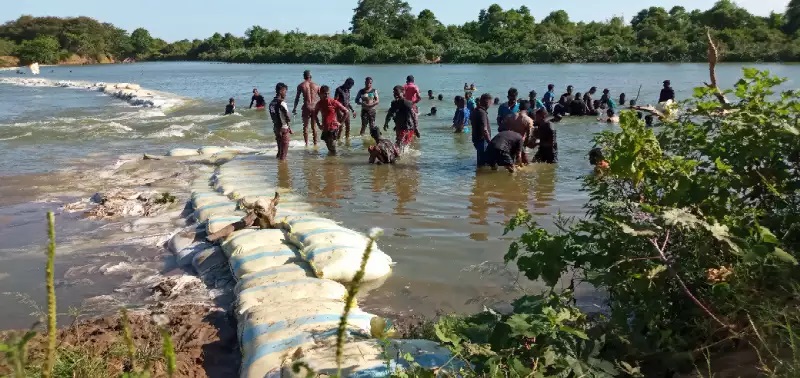 |
According to CSD Chief, the sand weir placement was conducted under the direct observation of the irrigation department officials.
Divisional Irrigation Engineer Akilan Kamaladasan said six officers of the Irrigation Department were also engaged in the project with the CSD workers.
Praising the yeoman task rendered by the CSD team which volunteered to undertake the mammoth task for the benefit of the farmer community in the region he said, Seruvila, Mutur and Werugal farmers would be more benefitted from the project.
“We received rain water during the maha season with overtopped upstream but yala is the most challenging spell, since receding water levels downward the Mahaweli River could be experienced at the onset of drought, because, the area is drought prone,” he added.
According to Kamaladasan, although there are 42 farmer communities living in the region, getting their contribution to construct the embankment was difficult due to coronavirus health guidelines that prohibited gatherings.
“Since this is a short-term measure, weir disappears during the showery season and again the sand gets deposited at the river bottom,” he said explaining consistency of the sand bag weir.
The Irrigation Department, according to Kamaladasan, is now conducting a study to construct a permanent structure at the location as the floods will occur periodically.
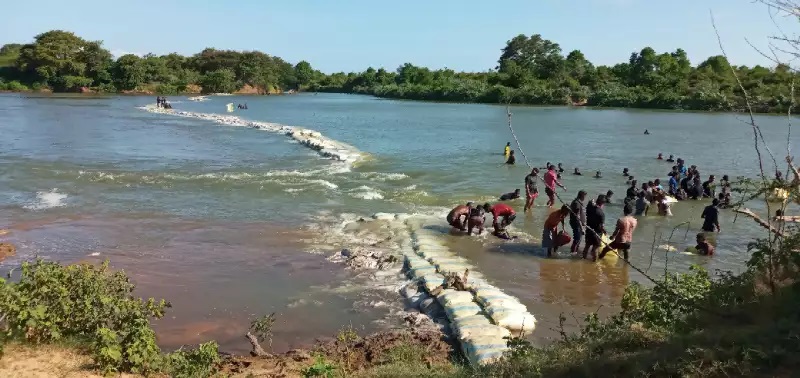 |
Constructing a permanent structure had been abandoned earlier due to the LTTE domination in the area before 2009.
CSD District Officer in Polonnaruwa Division Nalin Tharanga said they planned the entire episode from the very beginning since the placing of a barrier to prevent floods was not an easy task due to the width and the depth of the tributary.
Lax planning and unpreparedness may lead to endanger human lives and wash all sand bags away making entire effort futile, he further explained.
“We commenced the padding of sacks from the deepest positions. Once the sacks were placed, we had another team assigned to dive into the bottom and confirm the accuracy of the subterranean vault. This preparation does not entirely obstruct the water flow, as we let room for some water to spill over", he explained.
Tharanga said that with this experience they are now competent for constructing similar river embankments and geared to face any challenge that benefits the community.
“When we sensed the approach of wild elephants in the night, we obstructed them with campfire arrangements in the vicinity,” he recalled the unforgettable and exiting encounters they faced while fulfilling the task given to them.
The Assistant Regulator Udeni Madawatta, who led the swimming team, said they were tasked in lifesaving of those CSD workers who dived into river depths.
“Over half of the team was bitten by insects while they were carrying machinery and equipment through forest patches and still they are suffering from itching and skin irritations. Those red spots, which are still visible, are giving them burning sensation and scratchy,” he said adding that they are also experienced calf muscle cramps.
He said they all were enjoyed their happiness in a humble way as they could serve the communities irrespective of their religion and ethnicity.
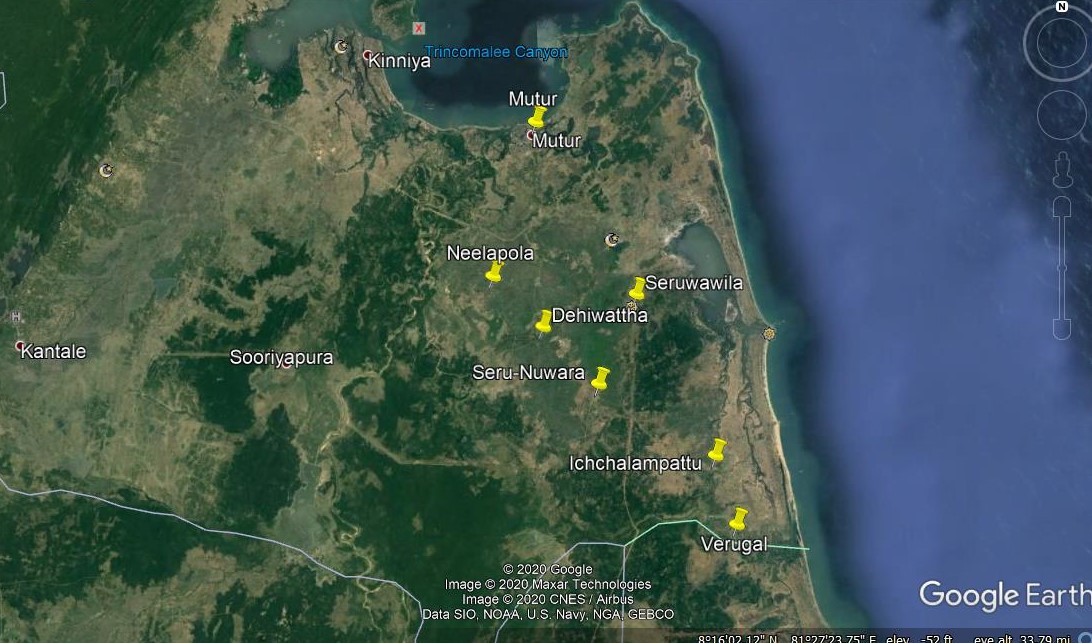 |